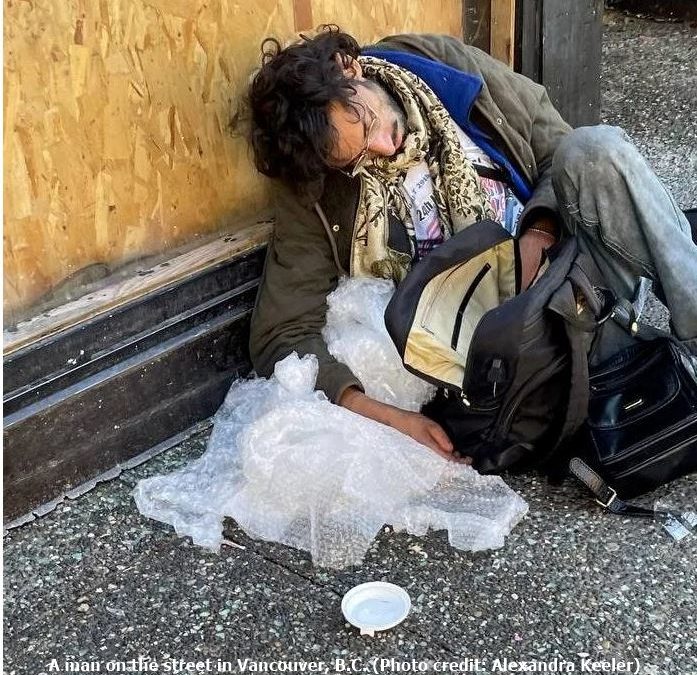
CAA Comment-
Break The Needle article 10 is again a very interesting and innovative way the Canadians are exploring strategies to deal with their drug crisis, which is not very dissimilar to our own.
Going after the companies that have made huge profits from promoting opioids is a very smart way, if successful, to fund the rehabilitation of addicts.
It is important that the Canadian Supreme Court has paved the way for all States of Canada and the Canadian federal parliament to join together in a class action against the parasitical companies at the alleged heart of the opioid crisis.
Our governments must keep a very close eye on developments and start to formulate the necessary legislation to allow a similar action in Australia.
In a landmark decision, the Supreme Court of Canada ruled Friday that a first-of-its-kind, nationwide class action lawsuit could proceed against 49 companies alleged to have played a role in Canada’s opioid crisis.
The lawsuit, which B.C. has already launched, seeks to recover some of the health-care costs governments have incurred since 1996 in responding to the drug crisis.
The crisis has claimed more than 47,000 lives nationwide in the last eight years alone.
“I am pleased by the Supreme Court decision affirming our right to hold pharmaceutical companies to account,” the federal Minister of Mental Health and Addictions Ya’ara Saks said in a post on social media platform X following the judgment.
“Canada intends to join this suit should it be certified,” the post said, referring to the process where a court determines whether a class-action lawsuit can proceed.
“We’ve taken action to crack down on the predatory practices of the pharmaceutical industry — and we won’t stop now,” Saks wrote.
The judgment
The case centred on a provision of B.C.’s Opioid Damages and Health Care Costs Recovery Act — legislation implemented in 2018 by then-Attorney General David Eby.
That provision enables B.C. to file lawsuits on other governments’ behalf.
Four of the 49 companies named in the class action — Sanis Health Inc., Shoppers Drug Mart Inc., Sandoz Canada Inc., and McKesson Canada Corporation — argued the provision was an unconstitutional overreach, violating territorial limits on provinces’ legislative power and undermining the sovereignty of other governments.
In a 6-1 decision, Canada’s highest court dismissed the companies’ appeal.
“National class actions, and in particular multi-Crown class actions, ensure that justice is not blocked by provincial borders,” Justice Andromache Karakatsanis wrote for the majority.
“The opioid epidemic is a stark example of a crisis that should attract cooperation and comity,” she wrote.
The court also said B.C.’s legislation respects provinces’ sovereignty because they retain the option “to opt out and go it alone.”
However, no province has exercised this option. All 10 provinces and three territories have chosen to join B.C.’s lawsuit. In 2022, the B.C. revised its legislation to permit the federal government to join its lawsuit as well, but it has not yet done so.
The court noted in its decision that some smaller jurisdictions would be unlikely to bring lawsuits if they were required to do so alone.
“As the Attorneys General for the Northwest Territories and Prince Edward Island point out, the existence of this choice [of joining the nationwide lawsuit] may be the only way that smaller jurisdictions could achieve recovery,” Karakatsanis wrote.
In a further show of solidarity, most Canadian provinces and territories have passed their own opioid-recovery laws modelled after B.C.’s legislation. These include provisions similar to the one challenged in this case.
The court noted that B.C.’s legislation is modelled on the province’s Tobacco Damages and Health Care Costs Recovery Act — legislation B.C. has used to sue tobacco companies for costs associated with tobacco-related harms. However, that legislation does not contain a provision comparable to the one in dispute in this case.
Some provincial governments — including B.C., Ontario and Quebec — have brought lawsuits against tobacco companies individually, while others have not commenced any litigation.
| In the US, state, federal, municipal and tribal governments have pursued a similar unification strategy against pharmaceutical companies over that country’s opioid crisis. The Multidistrict Litigation process has resulted in more than $50-billion in settlements so far.
|


An important, very important step in accountability for public health harms.
I wonder if this outcome of harm from a legal and promoted substance, unthought of even 15 years ago, will be a consideration in the ‘legalising’ and/or other promoting of other substances, such as cannabis?
This psychotropic substance, much like opioids in the past, has been touted not only as relatively harmless, but a ‘panacea’ of all ills – even in the face of mounting evidence of harms to public health from this drug.
The ‘vote for medicine’ regimens is now seeing governments actively circumventing best practice clinical trials and rushing through access legislation that only adds to the endorsing and enabling of drug use. Even worse, are continuing moves to legislate for the protections of ‘recreational’ use of this toxin.
Permission models always increase substance engagement and with ‘free’ public health then being demanded upon to ‘manage the damage’, the societal costs are not merely fiscal, but potentially systemic = with families, communities, workplaces all paying the price we are now seeing with the opioid mess.
You think we’d be smarter than this, but ah, such is the dilemma of the new Reefer Madness, that has people clamouring for more.